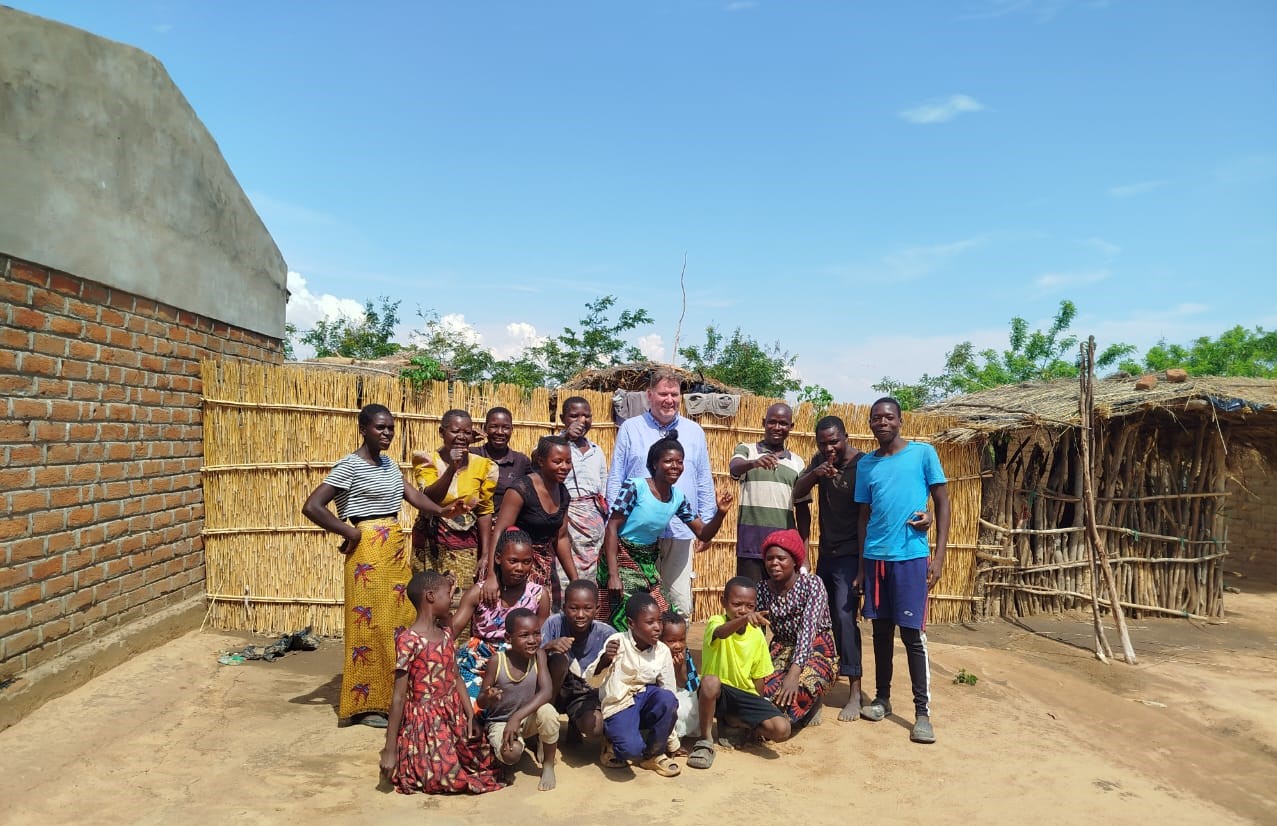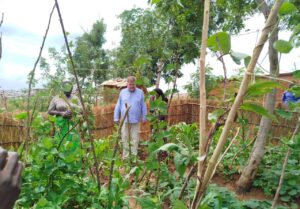
It should be pretty obvious why soil is so important – without good fertile soil, we go without food.
But soil quality doesn’t just affect our ability to produce food as its mistreatment is having a domino effect impacting many things from not only successful harvest and farming but for flood prevention and its ability to absorb water and CO2 emissions too.
Soil conservation is more important than ever and if we are to pushback on soil erosion – we must be conscious about how we grow our food and do so sustainably and never to excess.
Soil erosion is an issue which affects ALL of us but for marginalised communities in the places where we work – it’s a lifeline.
Degraded soil means wildlife and agriculture struggle and for farming communities in the Global South, who survive on what they produce from the land – barren and unfertile soil can trigger humanitarian crises as families grow more and more food insecure.
But YOU can help change all that!
At the heart of all our projects is sustainability and working with farming communities in Kasungu, a district in northern Malawi, soil preservation is so important.
Partnered with the Jesuit Centre for Ecology and Development (JCED), the Tasinth Mlimi project is focused on building resilience in vulnerable communities by way of improving food security whilst building grassroot knowledge of sustainable farming practices.
 A big part of the project is to tackle deforestation and restore ecosystems for carbon sequestration which is a fancy term about the process in which CO2 and greenhouse gases can be captured and stored reducing the amount being released into our atmosphere.
A big part of the project is to tackle deforestation and restore ecosystems for carbon sequestration which is a fancy term about the process in which CO2 and greenhouse gases can be captured and stored reducing the amount being released into our atmosphere.
Tim Flynn, our M&E Officer got to see firsthand the amazing work of farmers building businesses with eco-friendly farming practices.
In Kasungu, with Fr Admire from the Southern African Jesuits, he visited Talandira Banana Plantation Club, where women are engaging in green business, reforestation and creating victory gardens aimed at tackling food insecurity in their community.
They also visited Chimbalu Eco Village which has been the foundation stone of building sustainable farming practices across the country. Tim shared that in his 25 years of project experience, it was his first time seeing a family produce and follow a vision map, and the village continues to expand with agroforestry.
It has been three years since Tim’s previous visit (read that: here) and in that time the communities working in partnership with JCED have grown from strength to strength not only improving their own businesses but taking ownership and pride in their land seeking to gain more knowledge to boost crops and champion green businesses.
This training of farmers continues with workshops covering:
- Agroecology
- Permaculture
- Green businesses: fish farming, livestock
- mushroom production
- Market strategies
- Farm digitalization
At IJI we believe no one should be left behind especially those suffering from the consequences of climate change they didn’t contribute to.
If YOU want to help us build and empower communities. You can do something amazing today!


